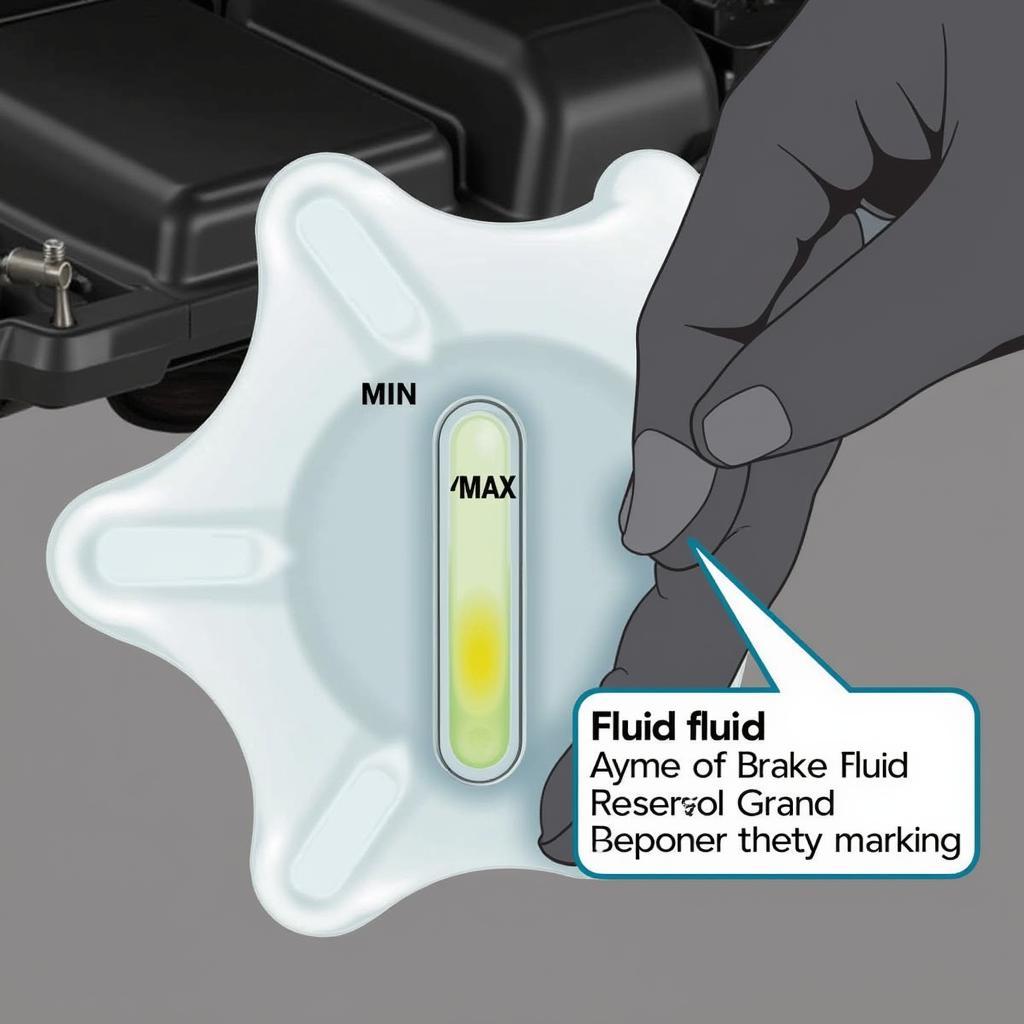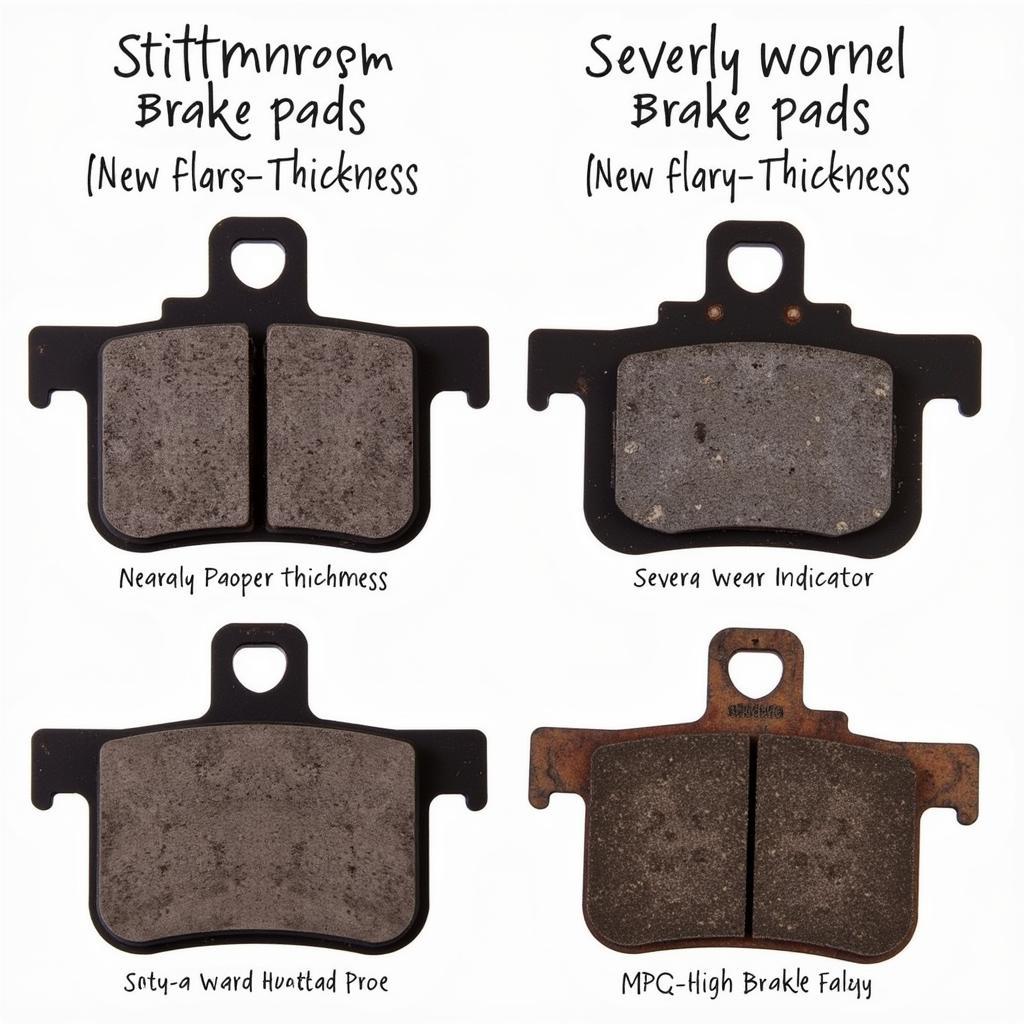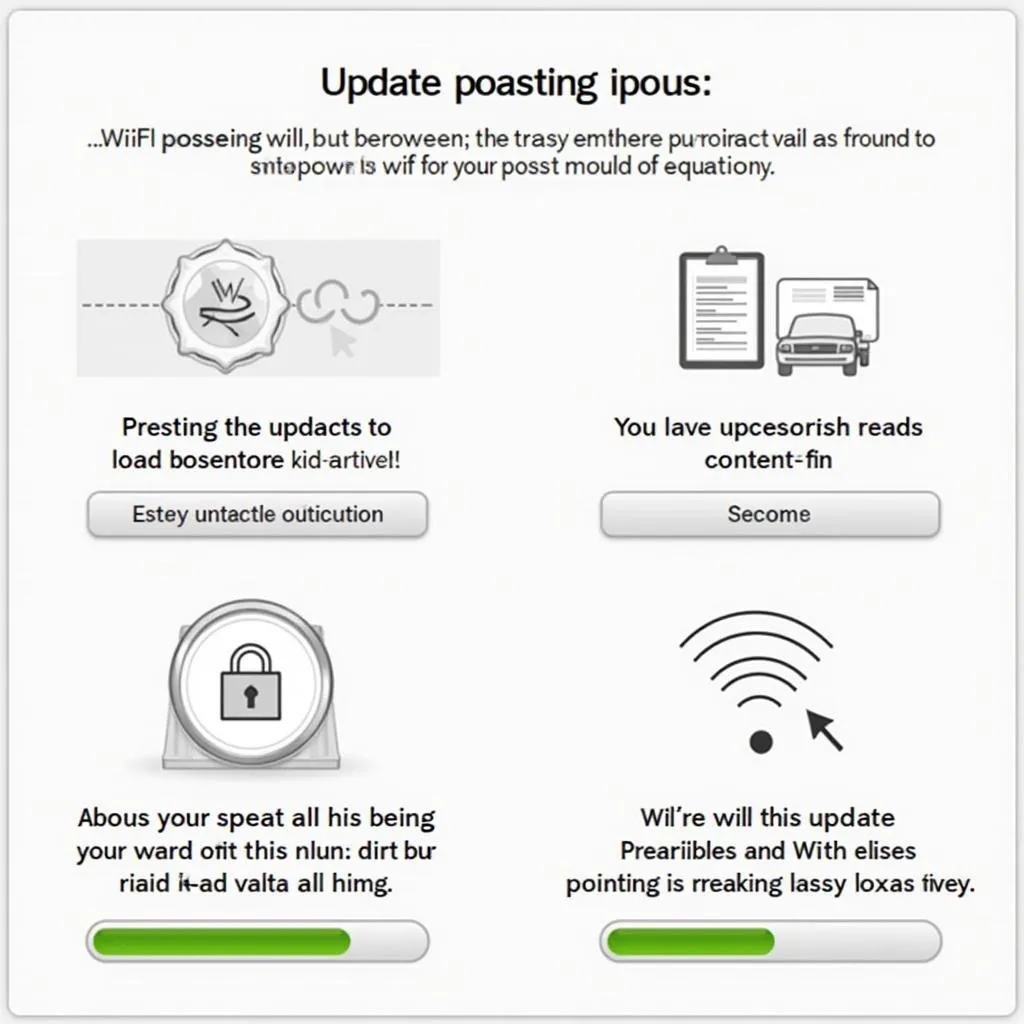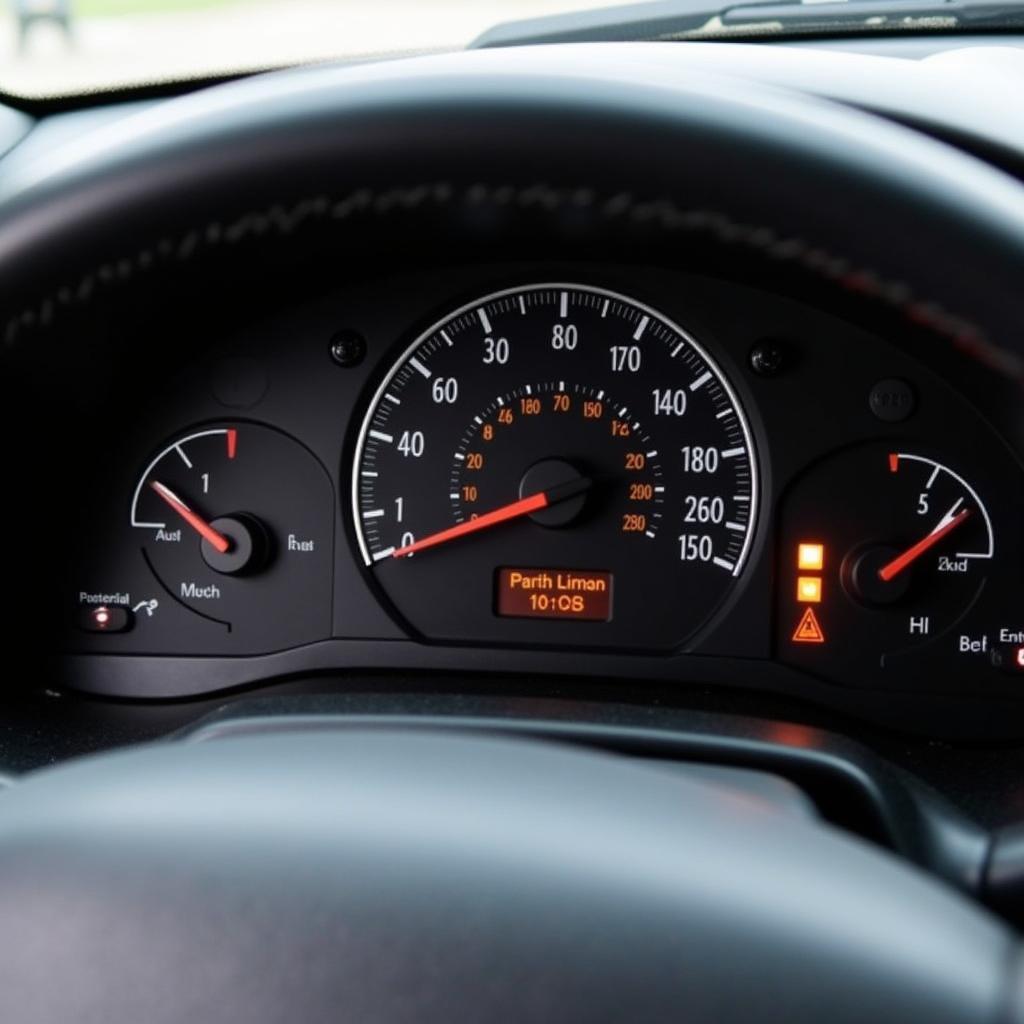Experiencing a persistent brake warning chime in your 2006 Toyota Highlander Hybrid can be unnerving. This issue, while frustrating, is a common problem for this model year. Fortunately, diagnosing the root cause and implementing a solution is often straightforward. This article will guide you through the potential culprits behind that incessant chime and provide practical solutions to restore peace to your drive.
Understanding the Brake Warning Chime
Before diving into troubleshooting, it’s crucial to understand why your Toyota Highlander Hybrid is equipped with a brake warning chime. This audible alert serves as a safety feature, designed to signal potential issues within your braking system or alert you to specific conditions.
Here are the typical triggers for the brake warning chime:
- Parking Brake Engaged: The most common reason for the chime is simply forgetting to disengage the parking brake. Always double-check its release before driving.
- Low Brake Fluid Level: Brake fluid is the lifeblood of your braking system. If the fluid level drops too low, the chime acts as a critical warning.
- Worn Brake Pads: As brake pads wear down, a sensor triggers the chime to indicate the need for replacement.
- Faulty Brake Light Switch: The brake light switch activates your brake lights when you press the pedal. A malfunctioning switch can cause the chime to sound erroneously.
- Electrical Issues: Wiring problems or a faulty sensor within the braking system can also trigger the chime.
Troubleshooting the Persistent Chime in Your 2006 Toyota Highlander Hybrid
Now, let’s pinpoint the exact reason behind your 2006 Toyota Highlander Hybrid’s persistent brake warning chime. Work your way through these steps:
- Check the Parking Brake: As obvious as it might seem, ensure the parking brake is fully released.
- Inspect Brake Fluid Level: Park on a level surface, open the hood, and locate the brake fluid reservoir. The reservoir will have a “MIN” and “MAX” marking. If the fluid level is below the minimum, add the correct DOT 3 or DOT 4 brake fluid as specified in your owner’s manual.
 Low Brake Fluid Reservoir
Low Brake Fluid Reservoir
- Inspect Brake Pads: Visually examine your brake pads through the spaces between the wheel spokes. If the pads appear thinner than ¼ inch or you notice a scraping metal sound when braking, it’s time for a replacement.
 Worn Brake Pads
Worn Brake Pads
When Simple Checks Aren’t Enough
If the chime persists despite checking the parking brake, brake fluid, and brake pads, it’s time to delve deeper:
-
Brake Light Switch: Locate the brake light switch above the brake pedal arm. Depress and release the brake pedal while listening for a distinct “click” from the switch. If the clicking sound is absent or inconsistent, the switch may be faulty and require replacement.
-
Seek Professional Diagnosis: For persistent chimes or suspected electrical issues, seeking professional help is advisable. A qualified mechanic can utilize specialized diagnostic tools to pinpoint the problem accurately.
“Remember,” advises Master Toyota Technician, Mark Williams, “addressing brake issues promptly is crucial for your safety on the road. Ignoring warning signs like a persistent chime could lead to more significant and costly repairs down the line.”
Preventing Future Brake Warning Chime Issues
Proactive maintenance is key to preventing future brake warning chime issues:
- Regular Brake Inspections: Schedule a comprehensive brake inspection at least once a year or every 12,000 miles.
- Timely Fluid Flushes: Replace your brake fluid according to the manufacturer’s recommended intervals.
- Quality Brake Pads: Invest in high-quality brake pads from reputable brands to ensure optimal performance and longevity.
Conclusion
The persistent brake warning chime in your 2006 Toyota Highlander Hybrid is a call to action, not a cause for panic. By methodically working through the potential causes outlined in this guide, you can identify the root of the problem and take appropriate steps to resolve it. Remember, your safety and that of your passengers is paramount. Never hesitate to seek professional assistance if you encounter a persistent chime or suspect a more complex issue within your braking system.


